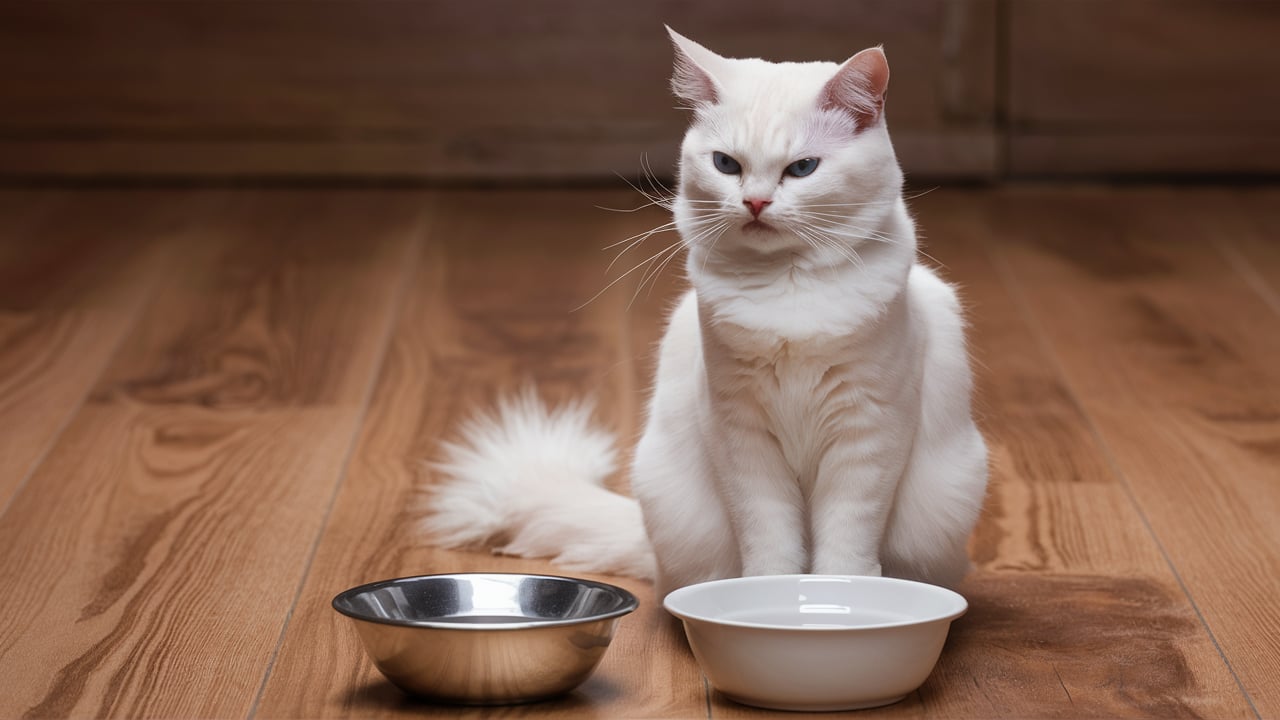“Why is my cat not eating?” It’s a question that every cat owner dreads. This article, Cat Safety Tips will delve into the potential causes behind a cat’s loss of appetite, helping you understand the reasons behind this behavior and guide you towards appropriate solutions.
Why is my cat not eating?
There are many factors that can contribute to your cat’s lack of appetite. Here are some of the most common causes:
Medical Conditions
- Illness: Sick cats may lose their appetite due to discomfort, pain, or changes in taste. Some common illnesses that can cause a cat to not eat include upper respiratory infections, kidney disease, liver disease, diabetes, thyroid disease, and cancer.
- Medications: Some medications can cause side effects like nausea, diarrhea, or a loss of appetite in cats.
- Pain: Cats in pain may not want to eat due to discomfort when eating or moving.
Dental Issues
- Dental disease: Dental problems, such as gingivitis, tooth decay, or missing teeth, can make it painful for cats to eat and therefore cause them to wont eat.
- Jaw problems: Jaw problems, such as jaw fractures or dislocations, can also make it difficult for cats to eat.
Stress and Anxiety
- Environmental changes: Cats are very sensitive to changes in their environment. Moving to a new home, adding a new family member, or changing daily routines can cause stress in cats and make them not eat or drink.
- Fear: Cats may be afraid of loud noises, other animals, or strangers, leading them to not eat.
- Loneliness: Cats are social animals and may not eat if they feel lonely or neglected.
Dietary Changes
- Food changes: Cats may not want to eat new food if they don’t like the taste or texture.
Inappropriate food: Food that doesn’t meet a cat’s nutritional needs may cause them to not eat. - Spoiled food: Spoiled or expired food can make cats not want to eat.
Environmental Factors
- Temperature: Cats may not eat in extreme heat or cold.
- Dirty environment: A dirty environment, such as a dirty litter box, can make cats not want to eat.
- Lack of light: Lack of light can make cats not eat.

Solutions for a Cat Not Eating
If your cat is refusing to eat, there are several things you can try to encourage them to eat again. Here’s a breakdown of potential solutions:
Home Remedies
- Warm the food: Warming up your cat’s food can release aromas and make it more appealing.
- Try different flavors: Offer a variety of flavors and textures to see what your cat prefers.
- Hand-feeding: If your cat is reluctant to eat from their bowl, try hand-feeding them small amounts of food.
- Add water: Adding a little water to dry food can make it more palatable.
- Use a different bowl: Some cats are picky about their bowls. Try using a different type of bowl or a shallow dish.
Dietary Adjustments
- High-quality food: Ensure your cat is eating a high-quality, balanced diet that meets their nutritional needs.
- Food sensitivities: Consider if your cat might have food sensitivities or allergies. Consult with your vet about potential dietary changes.
- Small, frequent meals: Offer small, frequent meals throughout the day instead of one large meal.
- Variety: Introduce variety into your cat’s diet by offering different types of food.
Environmental Enrichment
- Clean litter box: Ensure your cat’s litter box is clean and accessible.
- Comfortable eating space: Provide a quiet, comfortable space for your cat to eat, away from distractions.
- Interactive feeders: Try using interactive feeders that challenge your cat and make mealtime more stimulating.
- Playtime: Engage your cat in playtime to encourage activity and stimulate their appetite.
Stress Reduction
- Create a calming environment: Reduce noise and stress in your home by providing a safe and quiet space for your cat.
- Feliway diffuser: Use a Feliway diffuser to release calming pheromones that can reduce stress in cats.
- Gentle handling: Handle your cat gently and avoid any sudden movements or loud noises.
- Regular routine: Maintain a consistent daily routine to provide your cat with a sense of security.
When to Seek Veterinary Help
If your cat’s lack of appetite persists for more than 24 hours, or if you notice any other concerning symptoms, it’s crucial to seek veterinary help.
Here are some signs that warrant immediate veterinary attention:
- Vomiting or diarrhea
- Lethargy or weakness
- Weight loss
- Dehydration
- Difficulty breathing
- Changes in behavior
- Cat not eating or drinking for an extended period.
Your veterinarian can perform a physical exam, run tests, and determine the underlying cause of your cat’s anorexia. Early diagnosis and treatment can help improve your cat’s health and well-being.
Additional Considerations:
- If cat not eating or cat won’t eat for more than a day, it’s important to contact your veterinarian.
- If cat wont eat and shows signs of dehydration, such as sunken eyes or dry gums, seek immediate veterinary attention.
In conclusion
Why is my cat not eating? Understanding the potential causes behind a cat’s loss of appetite is the first step towards addressing the issue. From health problems to stress and environmental changes, many factors can affect a cat’s eating habits. Remember, if you notice your cat not eating for an extended period, contact your veterinarian immediately. Early diagnosis and treatment can help ensure the health and well-being of your furry friend.

Related Post
How Do You Treat Ear Mites In Cats? A Complete Guide
Why Do Cats Pant? Decoding Feline Breathing
Cat Constipation Symptoms: The Signs And What to Do?